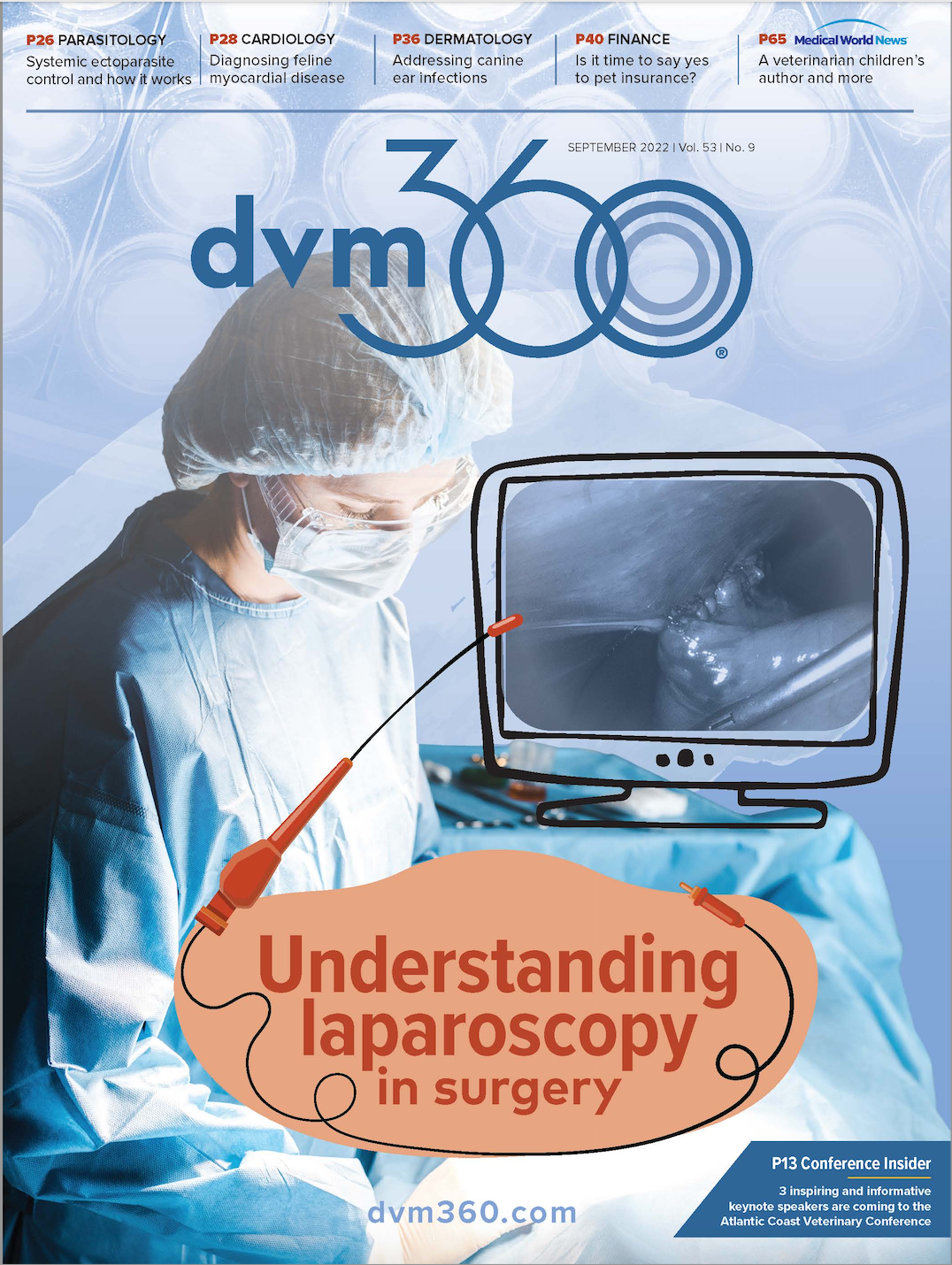What to know before taking out a loan to purchase a practice
4 crucial considerations before signing on the dotted line
Irina Strelnikova / stocka.adobe.com

To learn more about practice ownership from the authors of this article, check out our video interviews with Tom Seeko and CJ Burnett here:
- The first steps to thinking like a business owner (part 1)
- The first steps to thinking like a business owner (part 2)
Veterinary practice ownership has its advantages and disadvantages, just like everything in life. Practice ownership is not the same as being an employee. The transition will be a system shock for many because the amount of responsibility dramatically shifts. The roles and duties that weren’t a priority become yours overnight. With this in mind, let’s review 4 things to consider before signing on the dotted line to take out a loan.
You are a practice owner first, a veterinarian and/or practice manager second
When you’re an employee, everything is handled for you, from financial affairs and inventory to veterinary team satisfaction. We often find individuals will buy a practice (or start a practice) with little understanding of how to manage a successful business. Over the past few decades, practice owners have focused on medicine but neglected the financial side. There may be little understanding of the practice’s profitability, and the direction they want the practice to go is not reviewed often or at all. Ownership comes with many responsibilities, and one of those is financial risk. Learning to be a great business owner and leader should be the first priority, followed by practicing great medicine. Do you want to focus on patient care or the success of the practice? Although they may overlap, doing both roles at the same time is impossible. You should define what you’re good at before buying or starting a practice.
Your personal finances matter
You may be able to purchase an established veterinary practice with minimal personal net worth. However, if the lender requires a down payment, you may need as much as 20% of the total loan amount. In most instances, best practices are to ensure your credit score is good, keep at least $25,000 available in cash, and gain preapproval before exploring locations to start up or purchase a practice. If your personal financial affairs are in disarray, the opportunities for loans will be fewer, and your personal decisions could be transferred to the veterinary practice. You should focus on what you are trying to accomplish with your personal finances by defining your reasons for planning and what you want from practice ownership. Once you’re a practice owner, each decision you make will directly affect your personal financial future.
Taking care of employees should be the priority
Have you heard of Marcus Lemonis? He is CEO of Camping World and star of the television show The Profit. When he decides to partner with a business, he reviews 3 P’s: people, process, and product. People are first, because low morale and a team that doesn’t feel a sense of community or responsibility can lead to low productivity and turnover. The focus needs to be on the mission, vision, and community you want to create as an owner. Employees will mirror the temperature and demeanor established by the owner. If you step into practice ownership without looking at the practice as a team and just start practicing medicine, there can be a huge disconnect.
Compensation is a small part of the equation; knowing how to motivate and engage your team so they feel a sense of purpose can drastically increase productivity. If you are not a people person or leader, you may want to give practice ownership another thought. Don’t confuse these qualities with being extroverted; introverts are sometimes better managers, because they connect with each person individually and make them feel special. Alternatively, you may hire someone who is a people person so you don’t have to be. Delegating responsibility is possible but not always ideal; if that person leaves, others may follow.
You are borrowing a significant amount of money that must be repaid
You shouldn’t take this responsibility lightly. Without a clear vision and focus for the practice, you’ll feel the burden of this loan weighing on your shoulders. You’re likely borrowing hundreds of thousands or millions of dollars to start up or purchase a practice. If you use profits to increase the practice value, they and the percentage you keep as an owner will define your success over time. Also, keep in mind that when you make loan payments, they aren’t all tax deductible. Only the interest you pay is tax deductible; you’ll be paying the principal back after tax. Understanding this will help you know the metrics to hit to maximize your profits and thus your personal financial health.
Tom Seeko, CExP, began his focus in the veterinary field in 2014 and gained approval to provide continuing education in Florida in 2017. In an effort to reach more people, he became an approved Registry of Approved Continuing Education provider through the American Association of Veterinary State Boards in early 2018. Seeko and his team are currently involved in several associations in the state of Florida, including VetPartners and the Veterinary Business Management Association, providing veterinary students with resources and access to professionals to help jump-start their careers.
CJ Burnett, CExP, has always had a deep interest in the financial arena. This began at age 16 when he attended an investment symposium in California. From that point on, Burnett became incredibly curious about financial topics and devoured any information he could get from books and periodicals to learn and understand the world of investing. He started focusing on working with veterinarians in 2014 and cofounded Florida Veterinary Advisors as a result. Over the years, Burnett has had success working with veterinarians and business owners on structuring a financial plan that gives them the most control over the results they are after. Burnett does not want to only help people with their financial plans; he wants to change what’s possible for them; to show them how to master the “short game” for them to win the “long game.” Burnett speaks at national conferences, is involved in many national veterinary associations, and is a host on the Smarter Vet Financial Podcast.
Disclosure: This material is intended for general public use. By providing this content, Park Avenue Securities LLC is not undertaking to provide investment advice or a recommendation for any specific individual or situation, or to otherwise act in a fiduciary capacity. Please contact a financial representative for guidance and information that is specific to your individual situation. Guardian, its subsidiaries, agents, and employees do not provide tax, legal, or accounting advice. Consult your tax, legal, or accounting professional regarding your individual situation. This material contains the opinions of the author but not necessarily those of PAS or Guardian. registered representative and financial advisor of Park Avenue Securities LLC (PAS). Securities products and advisory services offered through PAS, member FINRA, SIPC. Financial representative of The Guardian Life Insurance Company of America (Guardian), New York, N.Y. PAS is a wholly owned subsidiary of Guardian. Florida Veterinary Advisors is not an affiliate or subsidiary of PAS or Guardian. Florida Veterinary Advisors is not registered in any state or with the U.S. Securities and Exchange Commission as a Registered Investment Advisor. The individuals associated with Florida Veterinary Advisors do not maintain specialized licenses or qualifications for the financial services provided to veterinary professionals. CA Insurance License #0K80141.
